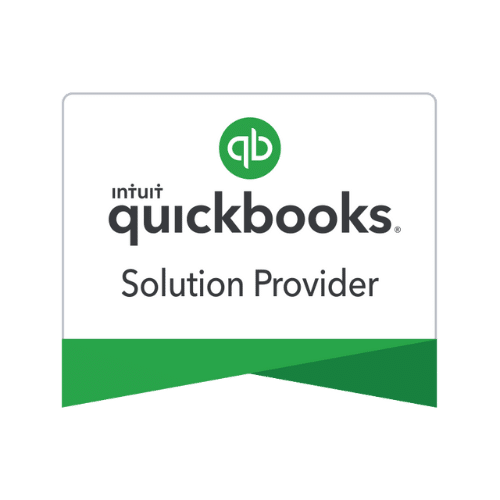As an independent contractor, keeping accurate and organized financial records is crucial to the success of your business. Bookkeeping can help you understand your financial status, manage cash flow, and make informed financial decisions. Whether you’re just starting out or have been in business for a while, this guide will provide a comprehensive overview of bookkeeping for independent contractors, including key concepts, best practices, and tips for staying organized and on top of your financial records. So, let’s dive into the world of bookkeeping and learn how to keep your business finances in order!
Introduction
Definition of Bookkeeping
Bookkeeping refers to the process of recording and maintaining financial transactions in an organized manner. This includes recording income, expenses, payments, and other financial transactions that occur within a business. Bookkeeping is critical to running a successful business, as it provides a clear and accurate record of the business’s financial status.
Why Bookkeeping is important for independent contractors
As an independent contractor, it is important to accurately and consistently track your financial transactions. Proper bookkeeping can help you stay organized, make informed financial decisions, and prepare for tax season. Furthermore, it can provide you with a clear understanding of your business income and expenses, helping you make informed decisions to grow your business.
Understanding Bookkeeping for Independent Contractors
Characteristics of Independent Contractors
Independent contractors are self-employed individuals who work for themselves and not for an employer. They typically work on a project basis and are not considered employees of the company they work for. Independent contractors have a unique set of bookkeeping needs compared to traditional employees, as they are responsible for their own taxes and financial record-keeping.
Key Bookkeeping Concepts for Independent Contractors
Some key bookkeeping concepts that independent contractors need to be aware of include income and expenses, tax obligations, cash flow management, and financial record-keeping. Understanding these concepts is critical to the success of your bookkeeping efforts.
Best Practices for Bookkeeping for Independent Contractors
Some best practices for bookkeeping for independent contractors include staying organized, keeping accurate financial records, reconciling bank accounts regularly, and monitoring cash flow. Additionally, it is important to keep up-to-date with tax laws and regulations, as these can impact your bookkeeping and tax obligations.
Getting Started with Bookkeeping for Independent Contractors
Choosing the Right Bookkeeping Method
Various bookkeeping methods are available, including manual, spreadsheet-based, and cloud-based bookkeeping software. When choosing a bookkeeping method, it is important to consider your business needs, the time and resources you have available, and your experience with bookkeeping.
Having said that, we highly recommend using modern, cloud-based software to help with bookkeeping and recording financial transactions. There are a ton of great free and paid options that make it much easier to handle bookkeeping for independent contractors.
Check Out Our Guide To The Best Bookkeeping & Accounting Software for Small Businesses Here
Setting up a Bookkeeping System
Once you have chosen a bookkeeping method, you can begin setting up your bookkeeping system. This may include creating a chart of accounts, setting up a system for recording financial transactions, and establishing a process for reconciling bank accounts. If you aren’t sure about what type of system you need, we recommend reaching out to a professional bookkeeping company, like BooXkeeping, for a free consultation.
Organizing Your Financial Records
Organizing your financial records is a critical step in getting started with bookkeeping. This may include creating a filing system for receipts, invoices, and other financial documents and maintaining a system for recording transactions consistently and accurately.
As mentioned before, most of the popular bookkeeping and accounting software on the market has built-in features for maintaining records built in, which makes this process much easier.
As a general rule for independent contractors, keeping organized financial records should always be a top priority since, in some cases, being an IC can carry a greater risk of being audited.
Recording Financial Transactions
Recording Income and Expenses
Recording income and expenses is a key aspect of bookkeeping. Keeping track of all financial transactions, including payments received, expenses incurred, and any other financial transactions that impact your business is important.
Keeping Track of Receipts and Invoices
Keeping track of receipts and invoices is essential for accurate bookkeeping. Receipts and invoices are a record of the financial transactions that occur within your business, which are critical for preparing tax returns and other financial reports. It is important to keep receipts and invoices organized and easily accessible for reference.
Recording Payments and Deposits
Recording payments and deposits are an important part of bookkeeping for independent contractors. This includes tracking clients’ payments and any deposits made into your business bank account. This information is critical for managing cash flow and preparing tax returns.
Managing Taxes for Independent Contractors
Understanding Tax Obligations
As an independent contractor, it is important to understand your tax obligations. This includes understanding the types of taxes you are responsible for, such as income and self-employment taxes. It is also important to keep up-to-date with tax laws and regulations, as these can impact your bookkeeping and tax obligations.
Keeping Track of Taxable Income
Keeping track of taxable income is an important aspect of bookkeeping for independent contractors. This includes recording all clients’ income and any other taxable income sources. This information is critical for preparing tax returns and accurately reporting your taxable income.
The IRS considers the following to be taxable income:
- Wages, salaries, tips, and other forms of compensation received from employment.
- Interest income from investments such as savings accounts, bonds, and certificates of deposit.
- Dividend income from stocks and mutual funds.
- Business and self-employment income, including income from freelancing, consulting, or other independent contractor work.
- Rental income from property you own.
- Retirement income includes pensions, annuities, and distributions from individual retirement accounts (IRAs) and 401(k) plans.
- Unemployment compensation.
- Capital gains from the sale of assets, such as stocks, real estate, or collectibles.
- Alimony received as a result of a divorce settlement.
- Prizes, awards, and gambling winnings.
Note that not all income is taxable, and some forms of income may be taxed differently. It is important to consult with a tax professional or the IRS to understand your tax obligations and ensure that you accurately report all taxable income.
Filing Taxes as an Independent Contractor
Filing taxes as an independent contractor can be a complex process, but it is an important part of your bookkeeping efforts. It is important to accurately report your taxable income and any deductions and credits you are eligible for. It may also be helpful to consult with a tax professional to ensure that you are in compliance with all tax laws and regulations.
If you choose to outsource your bookkeeping to a company like BooXkeeping, they can make sure you have all of your bookkeeping up to date come tax time and will provide tax-ready financial statements for you to provide to your tax professional.
Staying on Top of Your Bookkeeping
Reviewing Your Books Regularly
Reviewing your books regularly is important to stay on top of your bookkeeping. This may include reviewing financial reports, reconciling bank accounts, and monitoring cash flow. Regular reviews of your books can help you stay organized and make informed financial decisions for your business.
BooXkeeping clients, for example, have regular monthly calls to review their reports with their Chief BooXkeeping Officer.
Reconciling Bank Accounts
Reconciling bank accounts is critical in staying on top of your bookkeeping. This involves comparing the transactions recorded in your bookkeeping system with the transactions recorded by your bank. Reconciling your bank accounts regularly can help ensure that your financial records are accurate and up-to-date.
Monitoring Cash Flow
Monitoring cash flow is an important aspect of bookkeeping for independent contractors. This involves tracking incoming and outgoing cash and keeping an eye on your business bank account balance. Monitoring cash flow can help you stay on top of your financial obligations and make informed financial decisions for your business.
Conclusion
Summary of Key Points
Bookkeeping is critical to running a successful business as an independent contractor. Understanding the key concepts and best practices for bookkeeping, staying organized, and monitoring your financial records regularly can help you stay on top of your bookkeeping efforts and make informed financial decisions for your business.
Importance of Bookkeeping for Independent Contractors
Proper bookkeeping can provide independent contractors with a clear and accurate understanding of their financial status, allowing them to make informed financial decisions and grow their businesses.
Final Thoughts and Recommendations
In conclusion, bookkeeping is essential to running a successful business as an independent contractor.
Proper bookkeeping provides clarity and accuracy in your financial records, allowing you to make informed decisions and grow your business. Regular review of your books and monitoring of cash flow are important practices to stay on top of your bookkeeping efforts.
Consulting with a professional bookkeeper or accountant can provide valuable insights and ensure that you are in compliance with all financial regulations. In summary, invest time and effort in your bookkeeping process, and you will immediately see the benefits.
If you are an independent contractor or self-employed business owner and would like help with your bookkeeping, contact us today and schedule a free consultation with one of our expert advisors.









